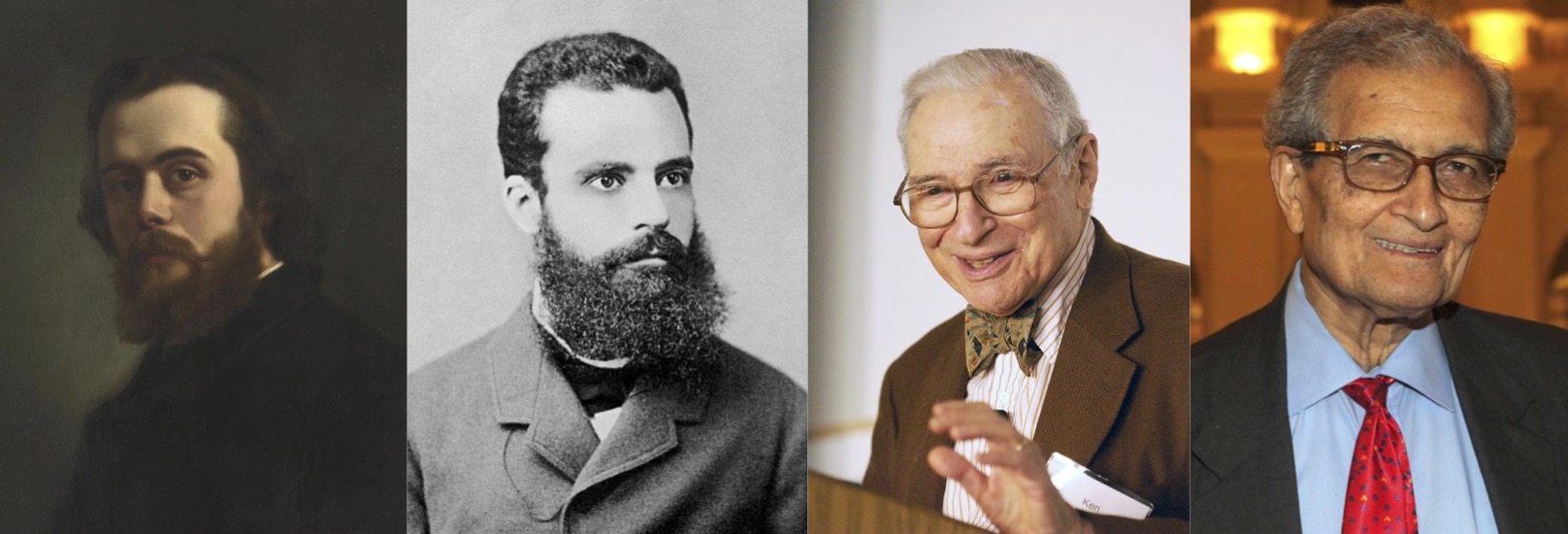
The SNSF Funded 4-year Project Starting on 01 August 2024
Announcement: To complete the project team, we intend to recruit three PhD students for 4 years, at 100% (full time), to work with us. For more information about the positions, please read the page dedicated to the Research Team.
Project’s Summary
Modern economics, especially since the ordinalist turn inaugurated by Vilfredo Pareto and the positivist turn introduced by Pareto and Robbins, has often refused to recognize the possibility of offering objective evaluations of ethical values and social norms that influence, or ought to influence, individual and collective preferences and choices. Instead, it is often argued that values and norms are subjective, and that their examinations should play no role in scientific disciplines such as economics. While multiple scholars working on normative economics, the history of economic thought, and the philosophy of economics have problematized this position, pressing social problems such as the ecological and climate crises have shown the necessity of objectively evaluating the normative foundations of individual and collective choices. For example, when evaluating the ecological ramifications of choices, we should consider whether they aim to satisfy more urgent preferences or preferences that do not appeal to most individuals. Substantial examinations of values and norms play a crucial role in the writings of ecological economists and those working on various proposals to rethink social justice in the context of the climate and ecological crises. Given the marginal role of substantial evaluations of values and norms in theoretical economics, the latter is rarely mobilized in public debates concerning the best ways to tackle the ecological and climate crises and other urgent social problems.
Our project aims to reconstruct and renew one of the most rigorous attempts in marginalist economics to formulate a theory explicitly founded on an ontology of individuals and institutions, offered by Léon Walras. While Walras’s crucial role in the emergence of marginalism and general equilibrium analysis is recognized, his social and applied economics are often overlooked and even discredited. However, even the most theoretical elements of Walras’s project seek to facilitate the evaluation of contending norms and values. Pareto, who maintains that economics should be free from normative considerations, has played a critical role in the marginalization of Walras’s quest for objective evaluations of norms and values in economics.
In view of normative questions’ centrality in his economic thought, Walras apprehended the necessity of closely considering the ontological specificities of human actions and social entities and the epistemological characteristics of theoretical endeavors to study social phenomena. Thus, our reconstruction of Walras’s project will also elucidate the link between his writings on three levels of analysis: ontological, epistemological, and theoretical. Not only is this reconstruction a significant contribution to the history of economic thought, but explicating the exact link between these three levels addresses a major challenge for contemporary studies of normative questions in economics. We aim to show that Walras’s ingenious articulation of these levels can be of great help for contemporary discussions.
Different parts of our project will make precise contributions to the history of economic thought, normative economics, the epistemology of economics, and social ontology. We shall offer a systematic appraisal of the nature and role of normativity in Walras and Pareto, and use this appraisal to make original contributions to existing discussions on objective evaluations of normative questions in economics. Considering the role of Walras in our project, we recognize the necessity of combining methods and insights from historical, theoretical, and philosophical studies to facilitate such evaluations. To conclude, we shall ascertain the practical relevance of our theoretical results, on their basis examining the pros and cons of three highly influential proposals for guaranteeing social justice in light of the ecological and climate crises, namely, Universal Basic Services, Universal Basic Income, and Minimum Inheritance.